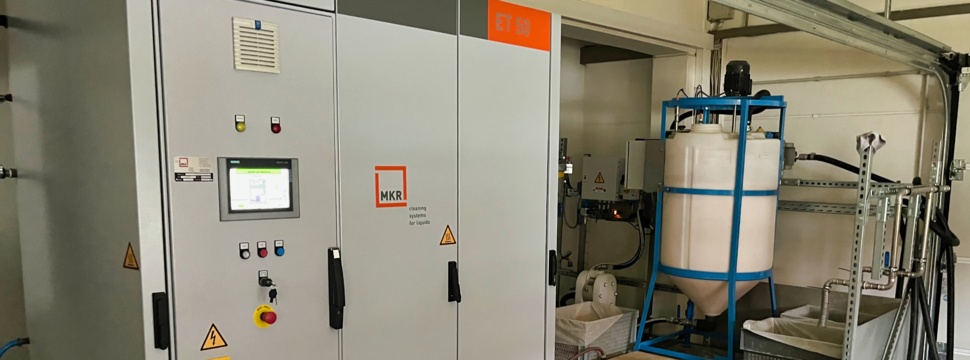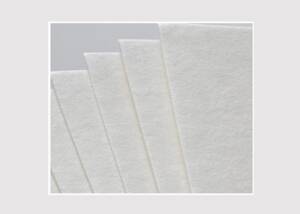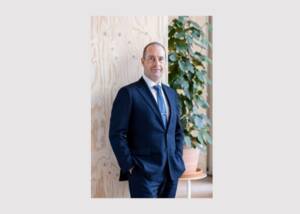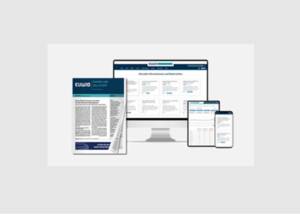Nägele drives sustainability agenda with KODAK FLEXCEL NX Technology from Miraclon and new water recycling unit
News General news
Sustainability, resource conservation, environmentally friendly materials and fewer carbon emissions are all trends in packaging and its production processes also significantly impacting packaging prepress.

For several years, Nägele Digital Repro GmbH of Kempten, Germany, has been focusing on sustainability and strategies for leaving a smaller carbon footprint, both in its own operations and in products supplied to customers.
Sustainability principles translated into action
Putting its sustainability principles into action, the prepress and platemaking service provider uses energy from renewable sources, and has invested in a large solar system that is installed on the roof of its premises. The electricity generated by the solar panels meets 100% of Nägele’s total energy requirements. Production processes in the repro and platemaking departments are likewise designed to reduce waste to a minimum, along with energy and material usage. The key: advanced color management based on customized profiles for every combination of press, ink system and substrate, contract proofs and a seamless color workflow.
FLEXCEL NX Technology also plays an important role in Nägele’s sustainability strategy. The company has been a FLEXCEL NX System user since 2010 and expanded its FLEXCEL NX platemaking capacity in Spring 2021 with a FLEXCEL NX Ultra Solution, allowing customers to enjoy a solvent-free, VOC-free, water-based processing alternative.
FLEXCEL NX Plates account for 98% of the total photopolymer plates produced by Nägele today; the tiny remainder are varnish plates for offset printing. The company operates two FLEXCEL NX Wide 4260 Systems and supplies numerous printers in Germany as well as several neighboring countries with FLEXCEL NX Plates, mainly for printing flexible packaging.
Success with the FLEXCEL NX Ultra Solution from Miraclon
About two years after the FLEXCEL NX Ultra Solution was added to Nägele’s portfolio, FLEXCEL NX Ultra Plates already comprise half of the company’s platemaking output. “All FLEXCEL NX Technology meets our and our customers’ efficiency and productivity requirements perfectly,” explains Managing Director Michael Nägele. “In addition, with FLEXCEL NX Ultra plates it takes less than an hour to deliver the first press ready plate, meaning we can respond promptly to last-minute changes in customers’ needs and they can keep their presses going. At the same time, use of the FLEXCEL NX Ultra Solution has enabled us to significantly reduce our company’s solvent consumption.”
Michael Nägele says the feedback received from packaging converters underscores FLEXCEL NX Plates’ excellent consistency and optimal ink transfer, which helps to come up to color faster during press startup, thus reducing waste and saving ink throughout the production run. “Our customers also tell us that when they use FLEXCEL NX Plates, the intervals between plate cleaning on press are longer. All of these effects add up not only to better press efficiency, but also to a more sustainable flexographic printing process.”
Addressing additional sustainability and resource conservation solutions
“Maximum efficiency and productivity are top priorities today, but our customers are also increasingly demanding convincing answers to additional sustainability and resource conservation issues,” adds Michael Nägele. “FLEXCEL NX Technology delivers a range of sustainability benefits, and the FLEXCEL NX Ultra Solution offers the additional benefit of being solvent-free and VOC-free processed. Yet, even the aqueous UltraClean waterwash solution used in the FLEXCEL NX Ultra Processor must be replenished as plates are made.”
Due to environmental regulations, FLEXCEL NX Ultra users would normally call a specialist firm to collect and recycle the wastewater – potentially involving transport as well as additional expense. Michael Nägele was looking for inhouse recycling solution and a way to treat the wastewater on site and recover the water it contained.
Since “off-the-shelf” recycling was not a feasible option, Nägele joined forces with a plant engineering company specializing in recycling of liquid media to develop an inhouse recycling unit for the FLEXCEL NX Ultra Processor’s wastewater. “It was a question of resource conservation and sustainability for us, not to mention economic efficiency, to find a technical solution that would allow us to recover and re-use water – a precious resource – in our plate production process. The investment of financial resources, time and effort – especially by Werner Rost, our Production Manager – was well worth it,” Michael Nägele comments. The specially designed system has been in operation at Nägele since mid-April 2023 and is fully integrated into the production process.
Recycling cuts operational water consumption
Designed to treat 300 liters of used processing agent per work cycle and installed in the company’s warehouse, the unit has a footprint of 6m x 3m and works semi-automatically. The wastewater passes through several processing steps: First, chemical precipitation takes place in an agitator. This is followed by filtration through four filter bags connected in series and finally distillation of the water in an evaporator. The latter is powered by electricity generated by the in-house solar system.
The recovered clean water is returned to the FLEXCEL NX Ultra Processor’s washing process, with only small amounts of solid residue remaining. Out of 1000 liters of waterwash solution, about 30 liters of residual liquid still need to be disposed of and when the filter bags need replacing, they can be discarded as household waste after drying together with the filtered substances.
“The investment in this recycling unit makes good sense as part of our overall sustainability and resource conservation strategy – after all, we want the number of FLEXCEL NX Ultra Plates produced by us to continue growing,” Michael Nägele concludes. “We see it as a decisive step towards further improving flexo platemaking’s eco-balance. We, our customers and ultimately also consumers and the environment are benefiting from this commitment.”










